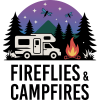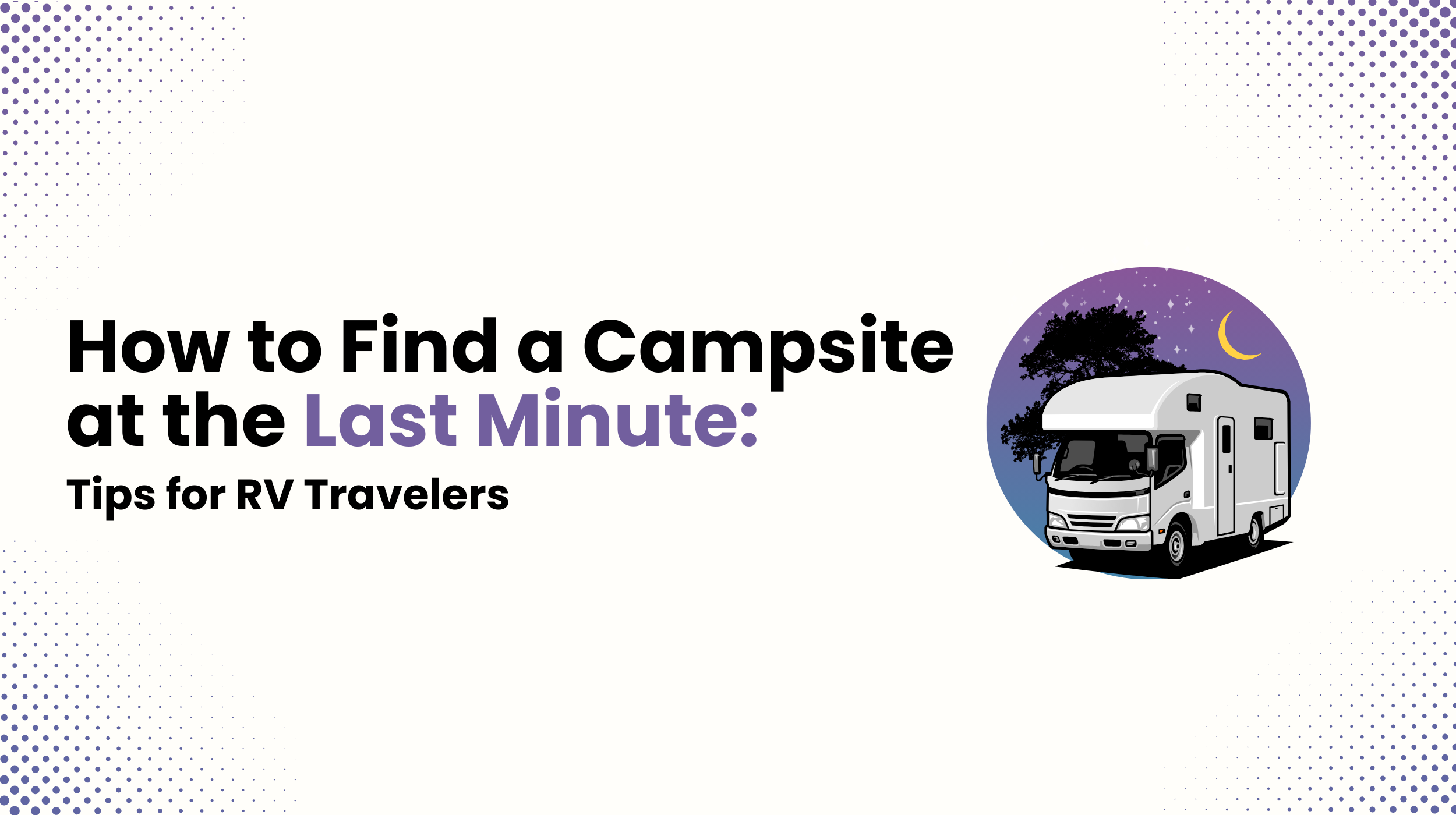Need a campsite at the last minute? Don’t panic, there’s still hope, even if you’re already on the road or it’s peak travel season. Whether you’re traveling on impulse, a detour led you somewhere new, or your planned site fell through, you can still find a safe, legal, and enjoyable place to park for the night. In short: use campground booking apps to scan for real-time availability, call parks directly to ask about cancellations, and know your backup options like Harvest Hosts or retail parking lots. With a little hustle and flexibility, you can usually find a place to rest. Here’s how to improve your chances of securing a last-minute spot.
Check Online Booking Sites and Apps
When time is short, turn to technology first. Several apps and websites can help you find available campsites near your location, and some even highlight cancellations and last-minute openings in real time.
Campendium is a favorite among RVers because it shows both paid and free camping spots, including BLM land and rest areas. Each listing includes reviews, photos, and information about amenities like hookups and cell coverage. When you’re in a pinch, filtering for “free camping” can be a lifesaver.
Hipcamp offers listings from public campgrounds and private landowners, sometimes including secluded campsites on farms or in someone’s backyard. Because some of these listings are off the radar of traditional RVers, you may have better luck finding availability, even last minute.
ReserveAmerica is ideal for state parks and national forests. Many government-run sites use this system for reservations, often showing real-time cancellations. Sites fully booked a few days ago might now have openings due to no-shows or early departures.
KOA (Kampgrounds of America) has its own app that makes finding last-minute spots easier across their nationwide network. These campgrounds are typically well-equipped, with full hookups, Wi-Fi, showers, and even laundry facilities. KOA Journey locations, designed for short overnight stays, are especially helpful for quick stops.
Also consider The Dyrt, which offers a paid version with discounts and last-minute booking features, and iOverlander, an excellent free tool that includes user-submitted camping spots across the U.S. and beyond.
Don’t forget to check for first-come, first-served campgrounds nearby. These often don’t allow or require reservations, meaning if you show up early in the day, ideally before checkout time, you have a good shot at claiming a site. This is especially true for national forests and Bureau of Land Management (BLM) lands, which often operate without reservations.
Another hidden gem: check RV-focused Facebook groups or forums related to your destination. Many travelers post about cancellations or openings, and you can sometimes claim a spot within minutes.
Call the RV Resort Directly
Even if a campground’s website or app shows “fully booked,” it’s always worth picking up the phone. Campgrounds occasionally hold back a few sites for last-minute travelers, unexpected maintenance issues, or even walk-ins. By calling directly and speaking to someone at the front desk, you might be able to grab one of these unofficially available sites.
Don’t be afraid to ask if they have a waitlist. Some private resorts manage cancellations by keeping a short waitlist, and if you’re willing to hang around or call back in a few hours, you could get lucky.
Another tip: ask about overflow parking. Even high-end RV resorts like Sun Outdoors or Yogi Bear’s Jellystone Park often have overflow areas. These areas are basic gravel lots or grassy areas, where they allow dry camping (no hookups) for one night. It’s not luxurious, but it’s a safe place to park and sleep while you regroup.
Be open to partial stays. A resort might not have four nights open in a row, but they could offer you a site for one or two nights. You can then move to a different site or a nearby campground afterward. Yes, you might need to unhook and re-level, but having a place to stay is worth the tradeoff.
If you’re polite, flexible, and show appreciation, camp staff are usually willing to go the extra mile to help you out.
Consider Alternative Overnight Options
If traditional campgrounds are full, it’s time to think outside the box. Fortunately, RVers have access to several creative, legal, and often free or low-cost alternatives.
Harvest Hosts is a membership program that allows self-contained RVs to stay overnight at farms, wineries, breweries, and other unique properties across North America. Hosts typically don’t charge a fee, though it’s encouraged to support the business by buying a bottle of wine, some fresh produce, or a handmade gift. These stays are usually limited to one night, and many hosts allow last-minute requests if you’re respectful and communicate well.
Boondockers Welcome is a sister program to Harvest Hosts and connects you with homeowners willing to share their driveway or land for a night or two. It’s a great way to meet locals, and many hosts are RVers themselves, who understand travel’s challenges.
In a true pinch, consider retail or rest stop camping. Many Walmart locations still allow overnight RV parking (though not all, so ask the store manager). Cracker Barrel restaurants are also RV-friendly and often have designated spots. These aren’t scenic stays, but they’re legal, convenient, and usually quiet after hours.
Highway rest areas in RV-friendly states like Texas, New Mexico, and Arizona allow overnight stays, sometimes with designated RV pull-through spots. These areas typically have restrooms and are well-lit, but don’t offer hookups, so you’ll need to be self-sufficient.
Lastly, in more remote areas of the western U.S., dispersed camping on public lands, such as BLM or National Forest land, is a solid backup. These sites aren’t developed and have no amenities, but they’re free and often surrounded by natural beauty. Just follow Leave No Trace principles, camp only where permitted, and be prepared with your own water and waste disposal plan.
What if Every Campground is Booked?
If your top choice is full, it’s time to shift gears. Start by widening your search radius. Instead of focusing on a single town or park, look 30 to 60 minutes in any direction. A small campground off the main highway or in a lesser-known town might have space, and could turn out to be even more peaceful or scenic than your original pick.
You can also break up your stay. Maybe there’s a one-night opening at a busy resort, and another site 20 miles down the road is open the next night. If you’re willing to move camp, you can still string together a decent trip. This “camp-hopping” approach works best when you’re prepared to travel light and re-set up quickly.
In actual worst-case scenarios, if you’ve tried everything and still come up empty, look for the safest legal place to park and rest. A common solution is a 24-hour truck stop like Flying J or Love’s. While these are designed for long-haul truckers, many have separate RV parking, dump stations, water, and showers. Be courteous: don’t take up truck-designated spots unless it’s clearly permitted for RVs.
You can also crash at a friend’s driveway with permission (check local rules to ensure it’s legal), or find a nearby casino, many of which offer free overnight RV parking or even full hookup RV lots for a small fee.
No matter where you land, prioritize safety. Look for well-lit areas, avoid isolated rest stops if you’re traveling alone, and always lock your doors. Once you’re safe and rested, you can wake up refreshed and try again in the morning for a longer-term campsite.
Stay Flexible, Stay Calm
The key to last-minute RV camping is persistence and flexibility. Stay calm, stay kind, and stay creative. In many cases, the site you end up with might be a hidden gem you wouldn’t have found otherwise. You may discover a charming small-town campground, meet a host with fresh farm eggs, or stumble upon a quiet boondocking spot beneath the stars.
Traveling by RV is all about freedom and adaptability. You can make almost any overnight work with the right mindset and a little hustle. Just remember to stay safe, respect local rules, and leave your spot better than you found it.

